1.Identification
1.1 GHS Product identifier
| Product name | norflurazon |
|---|
1.2 Other means of identification
| Product number | - |
|---|---|
| Other names | 4-chloro-5-(methylamino)-2-[3-(trifluoromethyl)phenyl]-3(2H)-pyridazinone |
1.3 Recommended use of the chemical and restrictions on use
| Identified uses | For industry use only. Agricultural chemicals (non-pesticidal) |
|---|---|
| Uses advised against | no data available |
1.4 Supplier's details
| Company | MOLBASE (Shanghai) Biotechnology Co., Ltd. |
|---|---|
| Address | Floor 4 & 5, Building 12, No. 1001 North Qinzhou Road, Xuhui District, Shanghai, China |
| Telephone | +86(21)64956998 |
| Fax | +86(21)54365166 |
1.5 Emergency phone number
| Emergency phone number | +86-400-6021-666 |
|---|---|
| Service hours | Monday to Friday, 9am-5pm (Standard time zone: UTC/GMT +8 hours). |
2.Hazard identification
2.1 Classification of the substance or mixture
Hazardous to the aquatic environment, short-term (Acute) - Category Acute 1
Hazardous to the aquatic environment, long-term (Chronic) - Category Chronic 1
2.2 GHS label elements, including precautionary statements
| Pictogram(s) | 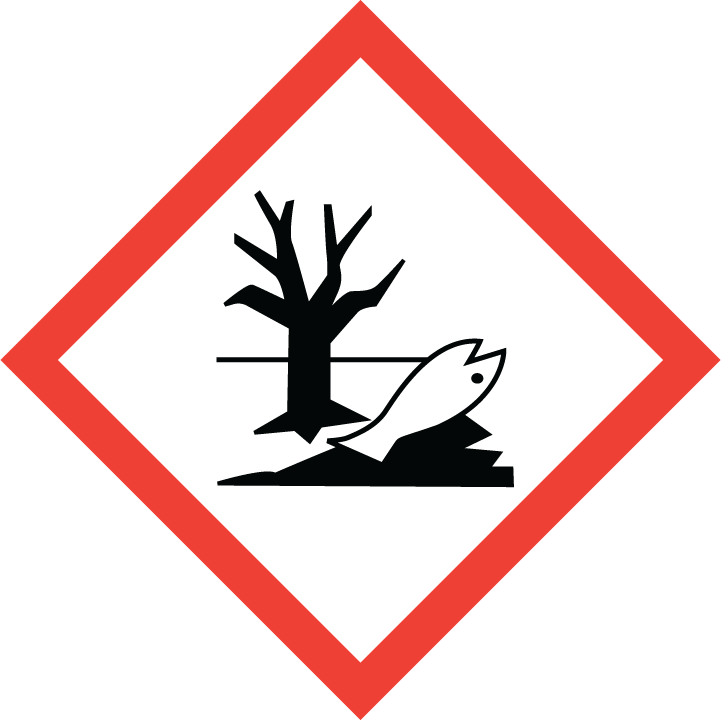 |
|---|---|
| Signal word | Warning |
| Hazard statement(s) | H410 Very toxic to aquatic life with long lasting effects |
| Precautionary statement(s) | |
| Prevention | P273 Avoid release to the environment. |
| Response | P391 Collect spillage. |
| Storage | none |
| Disposal | P501 Dispose of contents/container to ... |
2.3 Other hazards which do not result in classification
none
3.Composition/information on ingredients
3.1 Substances
| Chemical name | Common names and synonyms | CAS number | EC number | Concentration |
|---|---|---|---|---|
| norflurazon | norflurazon | 27314-13-2 | none | 100% |
4.First-aid measures
4.1 Description of necessary first-aid measures
General advice
Consult a physician. Show this safety data sheet to the doctor in attendance.
If inhaled
If breathed in, move person into fresh air. If not breathing, give artificial respiration. Consult a physician.
In case of skin contact
Wash off with soap and plenty of water. Consult a physician.
In case of eye contact
Rinse thoroughly with plenty of water for at least 15 minutes and consult a physician.
If swallowed
Never give anything by mouth to an unconscious person. Rinse mouth with water. Consult a physician.
4.2 Most important symptoms/effects, acute and delayed
Excerpt from ERG Guide 171 [Substances (Low to Moderate Hazard)]: Inhalation of material may be harmful. Contact may cause burns to skin and eyes. Inhalation of Asbestos dust may have a damaging effect on the lungs. Fire may produce irritating, corrosive and/or toxic gases. Some liquids produce vapors that may cause dizziness or suffocation. Runoff from fire control may cause pollution. (ERG, 2016)
4.3 Indication of immediate medical attention and special treatment needed, if necessary
Absorption, Distribution and Excretion
Both compounds /SAN-6706 and norflurazon/ were readily absorbed from nutrient solution by cotton (Gossypium hirsutum Leguminatae "Coker 203"), corn (Zea mays Leguminatae "WF9") and soybean (Glycine max (Leguminatae) Merr. "Lee") plants. In corn and soybean plants, these compounds were translocated more rapidly and in greater amount than in cotton.
5.Fire-fighting measures
5.1 Extinguishing media
Suitable extinguishing media
Excerpt from ERG Guide 171 [Substances (Low to Moderate Hazard)]: SMALL FIRE: Dry chemical, CO2, water spray or regular foam. LARGE FIRE: Water spray, fog or regular foam. Do not scatter spilled material with high-pressure water streams. Move containers from fire area if you can do it without risk. Dike fire-control water for later disposal. FIRE INVOLVING TANKS: Cool containers with flooding quantities of water until well after fire is out. Withdraw immediately in case of rising sound from venting safety devices or discoloration of tank. ALWAYS stay away from tanks engulfed in fire. (ERG, 2016)
5.2 Specific hazards arising from the chemical
Excerpt from ERG Guide 171 [Substances (Low to Moderate Hazard)]: Some may burn but none ignite readily. Containers may explode when heated. Some may be transported hot. For UN3508, be aware of possible short circuiting as this product is transported in a charged state. (ERG, 2016)
5.3 Special protective actions for fire-fighters
Wear self-contained breathing apparatus for firefighting if necessary.
6.Accidental release measures
6.1 Personal precautions, protective equipment and emergency procedures
Use personal protective equipment. Avoid dust formation. Avoid breathing vapours, mist or gas. Ensure adequate ventilation. Evacuate personnel to safe areas. Avoid breathing dust. For personal protection see section 8.
6.2 Environmental precautions
Prevent further leakage or spillage if safe to do so. Do not let product enter drains. Discharge into the environment must be avoided.
6.3 Methods and materials for containment and cleaning up
For minor spills, leaks, etc., follow all precautions indicated on the label and clean up immediately. Take special care to avoid contamination of equipment and facilities during cleanup procedures and disposal of wastes... /Norflurazon Technical/[EPA/OPPTS; Pesticide Product Label System (PPLS) - Search Results for Norflurazon Technical Product Label. 5 p. (August 26, 2003). Accessed from a Database Query at http://oaspub.epa.gov/pestlabl/ppls.home
7.Handling and storage
7.1 Precautions for safe handling
Avoid contact with skin and eyes. Avoid formation of dust and aerosols. Avoid exposure - obtain special instructions before use.Provide appropriate exhaust ventilation at places where dust is formed. For precautions see section 2.2.
7.2 Conditions for safe storage, including any incompatibilities
Do not contaminate water, food, or feed by storage or disposal. /Norflurazon Technical/[EPA/OPPTS; Pesticide Product Label System (PPLS) - Search Results for Norflurazon Technical Product Label. 5 p. (August 26, 2003). Accessed from a Database Query at http://oaspub.epa.gov/pestlabl/ppls.home
8.Exposure controls/personal protection
8.1 Control parameters
Occupational Exposure limit values
no data available
Biological limit values
no data available
8.2 Appropriate engineering controls
Handle in accordance with good industrial hygiene and safety practice. Wash hands before breaks and at the end of workday.
8.3 Individual protection measures, such as personal protective equipment (PPE)
Eye/face protection
Safety glasses with side-shields conforming to EN166. Use equipment for eye protection tested and approved under appropriate government standards such as NIOSH (US) or EN 166(EU).
Skin protection
Wear impervious clothing. The type of protective equipment must be selected according to the concentration and amount of the dangerous substance at the specific workplace. Handle with gloves. Gloves must be inspected prior to use. Use proper glove removal technique(without touching glove's outer surface) to avoid skin contact with this product. Dispose of contaminated gloves after use in accordance with applicable laws and good laboratory practices. Wash and dry hands. The selected protective gloves have to satisfy the specifications of EU Directive 89/686/EEC and the standard EN 374 derived from it.
Respiratory protection
Wear dust mask when handling large quantities.
Thermal hazards
no data available
9.Physical and chemical properties
| Physical state | Norflurazon is a colorless odorless crystals. Non corrosive. Used as an herbicide. |
|---|---|
| Colour | White to greyish brown, crystalline powder |
| Odour | Odorless |
| Melting point/ freezing point | 184ºC |
| Boiling point or initial boiling point and boiling range | 345.2ºC at 760mmHg |
| Flammability | no data available |
| Lower and upper explosion limit / flammability limit | no data available |
| Flash point | 162.6ºC |
| Auto-ignition temperature | no data available |
| Decomposition temperature | no data available |
| pH | no data available |
| Kinematic viscosity | no data available |
| Solubility | Sparingly soluble in hydrocarbons. |
| Partition coefficient n-octanol/water (log value) | log Kow = 2.30 |
| Vapour pressure | 6.26E-05mmHg at 25°C |
| Density and/or relative density | 1.45g/cm3 |
| Relative vapour density | no data available |
| Particle characteristics | no data available |
10.Stability and reactivity
10.1 Reactivity
no data available
10.2 Chemical stability
Stable in aqueous solution @ pH 3-9 (<8% loss within 24 hr). ... Stable upon storage (shelf life (@ 20°C) greater than or equal to 4 yr). ... Rapidly degraded by sunlight.
10.3 Possibility of hazardous reactions
NonflammableA trifluoromethyl pyridazinone derivative.
10.4 Conditions to avoid
no data available
10.5 Incompatible materials
no data available
10.6 Hazardous decomposition products
no data available
11.Toxicological information
Acute toxicity
- Oral: LD50 Rat oral >8000 mg/kg
- Inhalation: no data available
- Dermal: LD50 Rabbit percutaneous >20,000 mg/kg
Skin corrosion/irritation
no data available
Serious eye damage/irritation
no data available
Respiratory or skin sensitization
no data available
Germ cell mutagenicity
no data available
Carcinogenicity
Cancer Classification: Group C Possible Human Carcinogen
Reproductive toxicity
no data available
STOT-single exposure
no data available
STOT-repeated exposure
no data available
Aspiration hazard
no data available
12.Ecological information
12.1 Toxicity
- Toxicity to fish: LC50; Species: Lepomis macrochirus (Bluegill, juvenile); Conditions: freshwater; static; Concentration: 16.3 ppm for 96 hr (95% confidence interval: 13.3-19.9 ppm)
- Toxicity to daphnia and other aquatic invertebrates: no data available
- Toxicity to algae: no data available
- Toxicity to microorganisms: no data available
12.2 Persistence and degradability
AEROBIC: Norflurazon degrades slowly in aerobic soil, with a reported half-life of 130 days(1). The biodegradation half-life under aquatic conditions is 6-8 months(1). It has been found that biodegradation in soil is influenced by environmental conditions, with the rate increasing with increasing depth (5 cm, half-life 100 days; 80 cm, half-life 260 days), increasing with increasing pH (pH 5.25, half-life 105 days; pH 7.0, half-life 225 days), and decreasing with increasing soil organic matter (0.75% OM, half-life 210 days; 2.20% OM, half-life 75 days)(2). The soil types used in this study were a Lexington silt loam (Tennessee), a Beulah silt loam (Mississippi), and a Dothan loamy sand (Georgia)(2).
12.3 Bioaccumulative potential
An estimated BCF of 12 was calculated in fish for norflurazon(SRC), using a log Kow of 2.30(1) and a regression-derived equation(2). According to a classification scheme(3), this BCF suggests the potential for bioconcentration in aquatic organisms is low(SRC).
12.4 Mobility in soil
The Koc of norflurazon is estimated as 420(SRC), using a log Kow of 2.30(1) and a regression-derived equation(2). According to a classification scheme(3), this estimated Koc value suggests that norflurazon is expected to have moderate mobility in soil. Binding does appear to be influenced by organic matter, clay content and cation exchange capacity(4). Koc values of 3,311(5) and 1,914(6) have been reported for norflurazon although it is generally observed that norflurazon is expected to be mobile to highly mobile in soil(7).
12.5 Other adverse effects
no data available
13.Disposal considerations
13.1 Disposal methods
Product
The material can be disposed of by removal to a licensed chemical destruction plant or by controlled incineration with flue gas scrubbing. Do not contaminate water, foodstuffs, feed or seed by storage or disposal. Do not discharge to sewer systems.
Contaminated packaging
Containers can be triply rinsed (or equivalent) and offered for recycling or reconditioning. Alternatively, the packaging can be punctured to make it unusable for other purposes and then be disposed of in a sanitary landfill. Controlled incineration with flue gas scrubbing is possible for combustible packaging materials.
14.Transport information
14.1 UN Number
| ADR/RID: UN3077 | IMDG: UN3077 | IATA: UN3077 |
14.2 UN Proper Shipping Name
| ADR/RID: ENVIRONMENTALLY HAZARDOUS SUBSTANCE, SOLID, N.O.S. |
| IMDG: ENVIRONMENTALLY HAZARDOUS SUBSTANCE, SOLID, N.O.S. |
| IATA: ENVIRONMENTALLY HAZARDOUS SUBSTANCE, SOLID, N.O.S. |
14.3 Transport hazard class(es)
| ADR/RID: 9 | IMDG: 9 | IATA: 9 |
14.4 Packing group, if applicable
| ADR/RID: III | IMDG: III | IATA: III |
14.5 Environmental hazards
| ADR/RID: yes | IMDG: yes | IATA: yes |
14.6 Special precautions for user
no data available
14.7 Transport in bulk according to Annex II of MARPOL 73/78 and the IBC Code
no data available
15.Regulatory information
15.1 Safety, health and environmental regulations specific for the product in question
| Chemical name | Common names and synonyms | CAS number | EC number |
|---|---|---|---|
| norflurazon | norflurazon | 27314-13-2 | none |
| European Inventory of Existing Commercial Chemical Substances (EINECS) | Listed. | ||
| EC Inventory | Listed. | ||
| United States Toxic Substances Control Act (TSCA) Inventory | Not Listed. | ||
| China Catalog of Hazardous chemicals 2015 | Not Listed. | ||
| New Zealand Inventory of Chemicals (NZIoC) | Listed. | ||
| Philippines Inventory of Chemicals and Chemical Substances (PICCS) | Not Listed. | ||
| Vietnam National Chemical Inventory | Not Listed. | ||
| Chinese Chemical Inventory of Existing Chemical Substances (China IECSC) | Not Listed. | ||
16.Other information
Information on revision
| Creation Date | Aug 19, 2017 |
|---|---|
| Revision Date | Aug 19, 2017 |
Abbreviations and acronyms
- CAS: Chemical Abstracts Service
- ADR: European Agreement concerning the International Carriage of Dangerous Goods by Road
- RID: Regulation concerning the International Carriage of Dangerous Goods by Rail
- IMDG: International Maritime Dangerous Goods
- IATA: International Air Transportation Association
- TWA: Time Weighted Average
- STEL: Short term exposure limit
- LC50: Lethal Concentration 50%
- LD50: Lethal Dose 50%
- EC50: Effective Concentration 50%
References
- IPCS - The International Chemical Safety Cards (ICSC), website: http://www.ilo.org/dyn/icsc/showcard.home
- HSDB - Hazardous Substances Data Bank, website: https://toxnet.nlm.nih.gov/newtoxnet/hsdb.htm
- IARC - International Agency for Research on Cancer, website: http://www.iarc.fr/
- eChemPortal - The Global Portal to Information on Chemical Substances by OECD, website: http://www.echemportal.org/echemportal/index?pageID=0&request_locale=en
- CAMEO Chemicals, website: http://cameochemicals.noaa.gov/search/simple
- ChemIDplus, website: http://chem.sis.nlm.nih.gov/chemidplus/chemidlite.jsp
- ERG - Emergency Response Guidebook by U.S. Department of Transportation, website: http://www.phmsa.dot.gov/hazmat/library/erg
- Germany GESTIS-database on hazard substance, website: http://www.dguv.de/ifa/gestis/gestis-stoffdatenbank/index-2.jsp
- ECHA - European Chemicals Agency, website: https://echa.europa.eu/
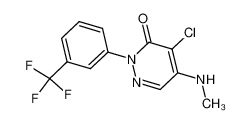










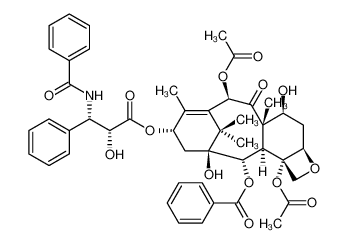
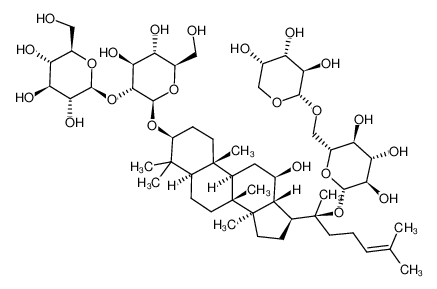
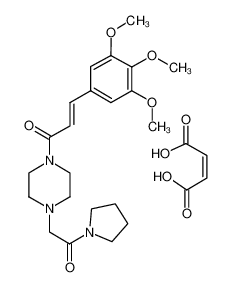
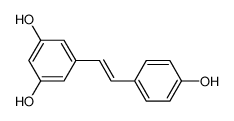
-
-

-
-
-

-
-
-

-
-
-

-
-
-

-
-
-

-
-
-

-
-
-

-
-
-

-
-
-

-
More Suppliers>>Hangzhou J&H Chemical Co., Ltd.
CHINA
Purity: 98%
Lead Time: 14 Day(s)
Price: -
Henan Coreychem Co.,Ltd
CHINA
Purity: 0.98%
Lead Time: 3 Day(s)
Price: -
Shanghai Jizhi Biochemical Technology Co., Ltd.
CHINA
Purity: 分析标准试剂%
Lead Time: 30 Day(s)
Price: -
Hangzhou DayangChem Co., Ltd
CHINA
Purity: 97%
Lead Time: 7 Day(s)
Price: -
CHINA
Purity: 99%
Lead Time: 3 Day(s)
Price: Min $10 /kg
Shanghai Miner Chemical Technology Co., Ltd.
CHINA
Purity: 96%
Lead Time: 21 Day(s)
Price: Min $268.5 /mg
Shanghai Aladdin Bio-Chem Technology Co.,LTD
CHINA
Purity: 96%
Lead Time: 56 Day(s)
Price: Min $282.67 /mg
Saan Chemical Technology (Shanghai) Co., Ltd.
CHINA
Purity: 96%
Lead Time: 7 Day(s)
Price: Min $262.86 /mg
Santa Cruz Biotechnology, Inc.
UNITED STATES
Purity: 96%
Lead Time: 10 Day(s)
Price: Min $114 /mg
Molchemical
CHINA
Purity: 96%
Lead Time: 7 Day(s)
Price: -